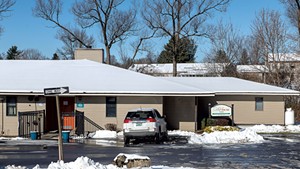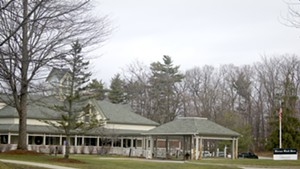Weeks after the pandemic took hold in Vermont, the health care industry won sweeping immunity from civil liability over how workers in facilities such as hospitals and nursing homes respond.
In an April 10 executive order, Gov. Phil Scott extended to most health care facilities and providers the same protections that firefighters, police officers and National Guard members enjoy when responding to natural disasters.
The order classifies emergency room nurses, health aides and even dentists as emergency responders in the pandemic, entitled to the same limits on liability as those who run into burning buildings or rescue residents stranded by rising floodwaters.
Those workers and their employers can’t face civil liability except for in cases of misconduct or gross negligence.
Lobbyists for hospitals and eldercare facilities pushed for the measure. They initially sought limits on liability similar to what the governors of New York and Illinois had approved, said Rebecca Kelley, Scott’s spokesperson. But administration officials felt the protections already granted to first responders would be sufficient if applied to health care workers, Kelley said.
“Essentially, all the governor’s declaration does is make it clear that under the current law, the COVID-19 response is an emergency response,” said Laura Pelosi, the Vermont Health Care Association’s lobbyist.
Pelosi said hospitals followed state orders to cancel elective surgeries, ramp up staffing and use personal protective gear — measures that helped bring the outbreak under control. For that, facilities should not be exposed to additional liability, Pelosi said.
Some advocates and attorneys worry about whether it was wise to give a pass to companies charged with caring for vulnerable populations such as eldercare home residents, since care sometimes falls short.
“You’re taking away one recourse that residents would have to counteract against bad behavior by facilities,” said Sean Londergan, a Vermont Legal Aid staff attorney who serves as the state’s eldercare ombudsman.
Despite fatal outbreaks in two facilities, Vermont’s nursing homes have been responsive and reasonably successful in containing the virus, especially compared to facilities in surrounding states, Londergan said. But enforcement of regulations in general is lacking, and only the most egregious problems ever lead to penalties, he said. That leaves the risk of legal judgments as an important safeguard for residents, he said.
Attorney Emily Joselson objects to the immunity.
“Nursing homes which were putting profits over safety before the pandemic are some of the same institutions that failed to prepare for, and are not appropriately confronting, this crisis, and are thus putting their vulnerable residents — and their caregivers — at greater risk of harm,” Joselson wrote in an email to
Seven Days.
She argued that Scott has a host of emergency management powers at his disposal in times of crisis, but reinterpreting existing laws is not one of them.
“The Governor cannot rewrite or expand a state statute to shield an industry from failing to take common-sense measures based upon available information, measures which federal and state regulations mandated before the current crisis to prevent infections and the spread of disease,” Joselson wrote.
She worries that health care organizations will claim all shortcomings — whether ones that caused a broken hip at an eldercare home or a missed cancer diagnosis at a rural hospital — to be COVID-19-related.
That was never the intent of the order, Pelosi said. She countered that regulators have been “very aggressive” and that, overall, facilities have done a “phenomenal job” of keeping the virus at bay or containing its spread.
“They are doing the best they can do with, frankly, a very challenging situation,” Pelosi said.












Comments
Comments are closed.
From 2014-2020, Seven Days allowed readers to comment on all stories posted on our website. While we've appreciated the suggestions and insights, right now Seven Days is prioritizing our core mission — producing high-quality, responsible local journalism — over moderating online debates between readers.
To criticize, correct or praise our reporting, please send us a letter to the editor or send us a tip. We’ll check it out and report the results.
Online comments may return when we have better tech tools for managing them. Thanks for reading.